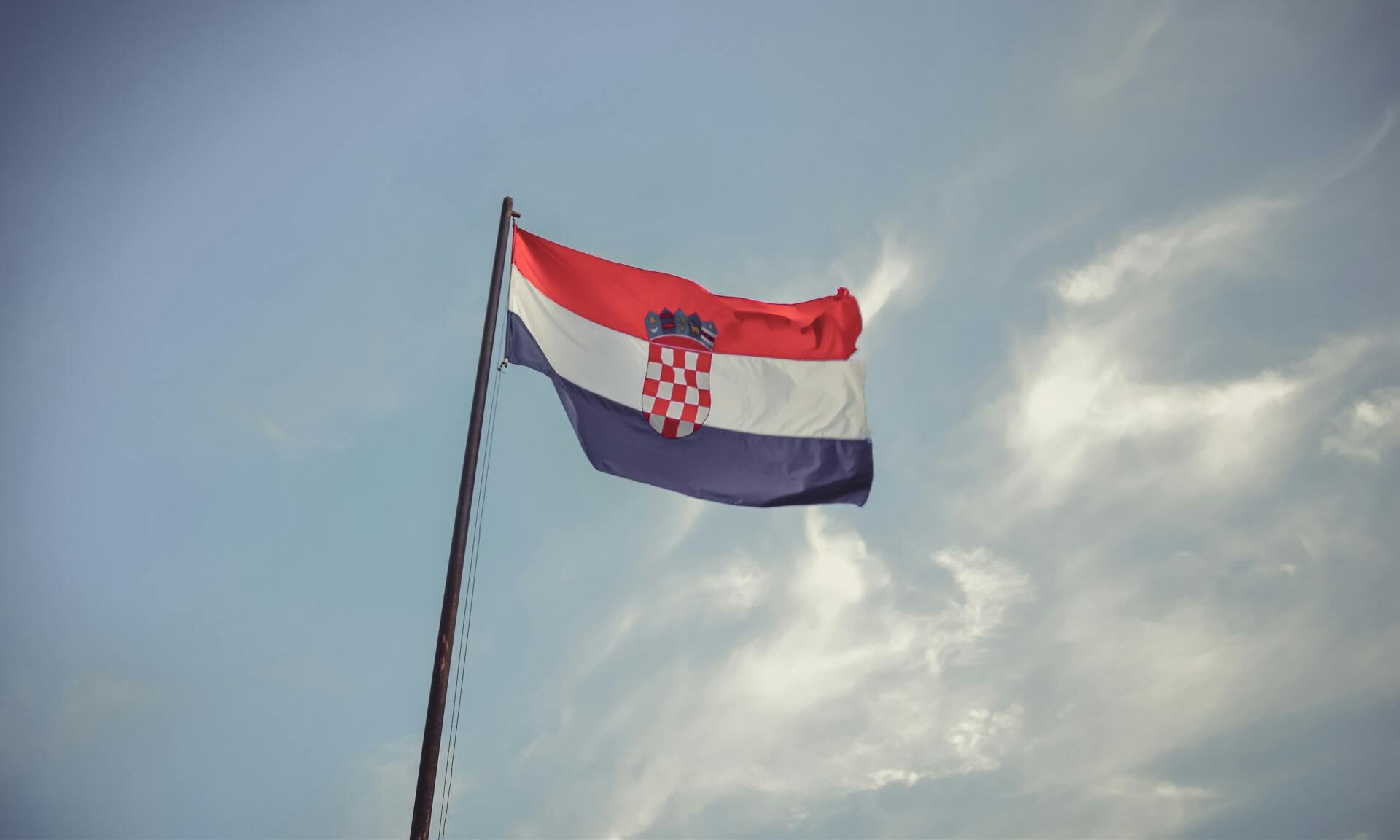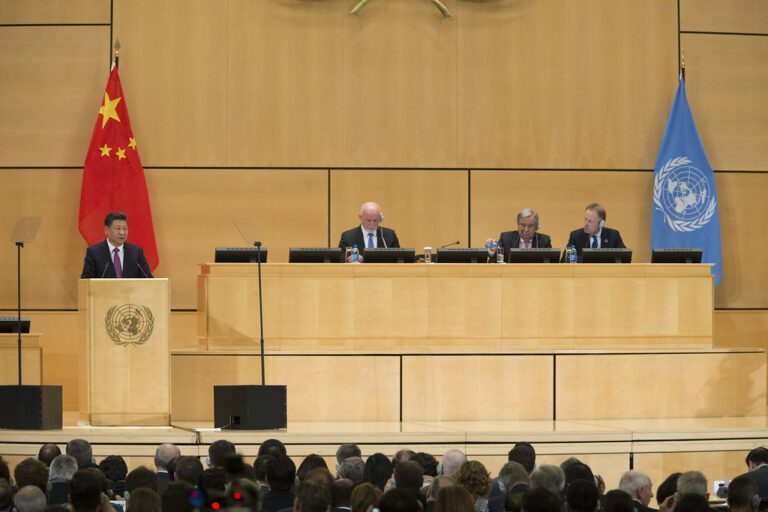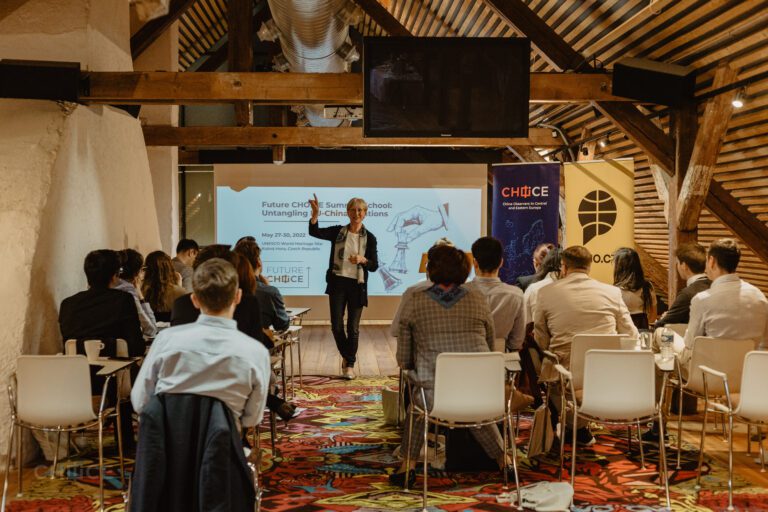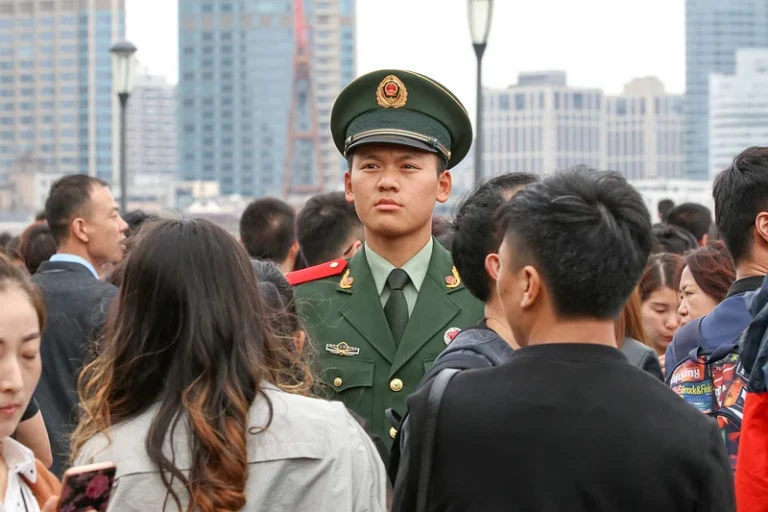Decoding De-Risking: EU’s China Strategy and Its Implications for Croatia

As the EU recalibrates its China strategy with a focus on de-risking, Croatia finds itself navigating the intricate balance between cooperation and caution.
This article is part of a series of articles authored by young, aspiring China scholars under the Future CHOICE initiative.
Since the Maastricht Treaty of 1992, the EU has continually adapted its strategies towards Beijing, reflecting the rapid changes in China’s global role. The 2003 Comprehensive Strategic Partnership marked the highpoint of cooperation, while the 2019 EU-China Strategic Outlook highlighted a shift, describing China not only as a partner and economic competitor but also as a systemic rival. Currently, the EU predominantly views China as a systemic rival and an economic competitor, with a smaller portion categorized as a partner for cooperation. This evolving perception underpins the current de-risking strategy announced in March 2023, driven by heightened global tensions from the US-China trade war, the Russian invasion of Ukraine, and post-COVID-19 economic security concerns. The strategy emphasizes managing risks rather than decoupling, with European Commission President Ursula von der Leyen stressing China’s shift from “reform and opening up” to “security and control.”
One year later, it is worth asking how de-risking has affected EU-China trade relations, and what implications it has had for smaller member states, using the example of Croatia. The ongoing assessment of this strategy can reveal its impact on the EU’s economic and political landscape as it strives to balance cooperation and competition with China.
Two Types of De-risking
The de-risking strategy includes two main components: diplomatic engagement and economic resilience. Diplomatically, it seeks fairer competition with China and cooperation on global challenges like climate change and pandemic preparedness. Economically, it focuses on four pillars: enhancing EU competitiveness in health, digital, and clean-tech sectors; leveraging trade instruments to address security concerns; defining relationships in high-tech areas to prevent enhancing rivals’ military capabilities; and aligning with global partners, including signing new trade agreements.
China accounts for 9 percent of the EU’s goods exports and more than 20 percent of its goods imports. The EU remains heavily reliant on China for key inputs, such as rare earth elements (98 ), magnesium (93 percent), and lithium (97 percent). Additionally, the EU imports around 29 percent of its wind turbines and component parts and approximately 68 percent of its heat pumps and sources over 80 percent of its solar imports from China. These dependencies underscore the necessity of initiatives like the Net-Zero Industry Act and the Critical Raw Materials Act to secure and diversify supplies. Despite trade imbalances, much of the EU-China trade remains mutually beneficial, highlighting the complex interdependence that the de-risking strategy aims to navigate.
Croatia’s Approach to De-risking
Croatia’s relationship with China has been characterised by both economic cooperation and diplomatic engagement. Since 1992, bilateral relations have steadily expanded, particularly in the economic sphere. Chinese economic engagement in Croatia has primarily focused on infrastructure projects, the most famous being the Pelješac Bridge built in 2022 but also a €230 million investment in the Senj wind farm. Besides that, Chinese companies have shown interest in investing in Croatian ports, tourism, and renewable energy sectors. According to the Croatian National Bank, total foreign direct investment from China in the last thirty years was less than €160 million. However, the actual figures are higher, as Chinese company investments have predominantly been made through European firms, subsidiaries, or branches. Diplomatically, Croatia and China have maintained a generally positive relationship, marked by regular high-level visits and exchanges. The two sides have expressed mutual respect for each other’s sovereignty and territorial integrity.
Overall, China is not a major focus of Croatia’s foreign policy. The country’s National Security Strategy from 2017 does not mention China, and the Foreign Ministry’s “Implementation Programme“ for 2021-2024 references China positively in the context of the Chinese-led China-CEE cooperation initiative. Rather than developing its own China strategy, Croatia will continue to align with the EU’s broader approach to China, including the de-risking strategy, which is expected to be updated in the next two to three years. Thus, while China remains a beneficial partner, Croatia’s cautious and EU-aligned stance ensures a balanced and diversified approach to its international relations.
Croatian Prime Minister Andrej Plenković maintains a pragmatic and cooperative stance on China, realizing the importance of deepening political and economic ties. His government has decided to remain in the 14+1 initiative, stressing that this participation does not undermine Croatia’s EU membership or principled positions on global issues but rather enhances its global influence. Plenković values the intensified dialogue and cooperation facilitated by this format, which has allowed him to meet with Chinese Prime Minister Li Keqiang multiple times and has been instrumental in significant projects such as the Pelješac Bridge.
Croatian President Zoran Milanović, on the other hand, holds a more balanced view of China, recognizing both the strategic and geopolitical complexities of the relationship. He has acknowledged China’s support for Russia, particularly in the context of the aggression against Ukraine, which complicates global relations. Milanović has previously highlighted Croatia’s need to balance its national interests with its NATO commitments, indicating that while China is not as significant a concern for Croatia, the country must navigate these dynamics carefully without blindly following the policies of larger NATO members.
Croatian politicians in the European Parliament have voiced nuanced support for the EU’s de-risking strategy while emphasizing the need for a balanced approach. Karlo Ressler, a member of the European People’s Party (EPP) and the Delegation for Relations with China, stated in a June 2023 interview that “separating from China is not in Europe’s interest.” He advocated for reducing risks in areas where trade and investment threaten economic and national security, particularly in sensitive technologies, dual-use goods, and technology transfers. Željana Zovko, another Croatian MEP from the EPP, supported the de-risking strategy, highlighting the importance of a unified EU stance on China and collaboration with transatlantic and Indo-Pacific partners to counter China’s influence. Nonetheless, she highlighted the need for maintaining an open and constructive dialogue with Beijing.
MEP Romana Jerković, from the Socialist and Democrats Group (S&D), underscored the significance of the Critical Raw Materials Act as a response to aggressive Chinese trade practices, aiming to reduce the EU’s dependence through efficient resource use, sustainable products, and innovations. MEP Tonino Picula, also from the S&D Group, stressed the importance of energy independence, adjustments to supply chains and supporting the autonomous development of European industry in the context of EU-China relations as early as 2022.
There is a general consensus among Croatian politicians from the two main parties, the Croatian Democratic Union (HDZ) and the Social Democratic Party (SDP), supporting the de-risking strategy and acknowledging the need for a balanced approach that reduces risks in sensitive areas while maintaining open and constructive dialogue with China. In July 2023, the Croatian Ambassador to China, Dario Mihelin, reiterated this stance at a conference at Peking University, stressing that decoupling is explicitly excluded in the European Council’s conclusions and noting China’s own efforts to reduce dependence and risk through its dual-circulation economic model.
De-risking: One Year Later
In 2023, China remained a crucial partner for the EU, accounting for 8.8 percent of EU exports of goods and 20.5 percent of EU imports. Despite a steadily growing trade deficit, which saw a notable increase of €70 billion from 2020 to 2021, 2022 marked a significant turning point with the EU’s negative trade balance with China ballooning to €397 billion, an increase of around €150 billion from the previous year. However, in 2023, the EU managed to reduce this trade deficit by €106 billion, or 27 percent, bringing it down to €291 billion. This improvement was accompanied by a 3 percent decline in exports, which fell to €223 billion, and an 18 percent decrease in imports, dropping to €514 billion.
The apparent success of the EU’s de-risking strategy in its first year, reflected by a reduction in the trade deficit with China by €106 billion, has been scrutinized by analysts from the European Policy Centre and the Brussels-based think tank Bruegel. They argue that this reduction is not due to the EU’s efforts but rather China’s successful implementation of import-substitution measures aimed at reducing its strategic dependence on the West. Beijing continues to invest in self-sufficiency in manufacturing and advanced technology, a key aspect of its own de-risking strategy.
The EU, however, faces significant challenges in achieving similar goals in the short term, primarily due to divergent interests among member states like France and Germany, bureaucratic obstacles, and slow implementation processes. Achieving effective de-risking will require significant industrial development within Europe to create a more competitive economy, and such a process will extend across several European Commission terms. Despite these challenges, there is potential for progress, as the manifestos from various groups in the European Parliament ahead of the 2024 elections indicate a widespread recognition of China as a challenge. These groups emphasize the need to reduce dependency on China, prioritize de-risking, and diversify supply chains, calling for a more unified EU capable of competing with China.
Croatia-China Relations in an Evolving EU Context
Croatia, similarly, has faced a substantial trade deficit with China, which was €947 million in 2021. This deficit increased to €1.3 billion in 2022 but slightly decreased to €1.2 billion in 2023. Specifically, in 2023, Croatia imported €1.3 billion worth of goods from China while exporting only €79 million in goods to China. Interestingly, trade data from both prior to and following the implementation of the de-risking strategy indicate that there have not been significant changes in Croatia’s imports, exports, or trade balance with China. Additionally, Croatia’s direct export exposure to China is one of the lowest among EU member states, at only 3 percent. This low level of dependency suggests that Croatia’s relationship with China is unlikely to be significantly impacted by the EU’s de-risking strategy. Furthermore, Croatia is one of the three EU countries that has chosen not to implement a direct foreign investment screening mechanism. Nonetheless, Croatia and China maintain a positive relationship primarily grounded in financial investments, with China viewing Croatia as a strategic link between the EU and the Western Balkans for its economic interests.
The implementation of the Foreign Subsidies Regulation (FSR) by the European Commission in 2022, aimed at protecting the EU’s internal market from distortion by heavily subsidized companies from third countries, particularly from China, will significantly influence Croatia-China relations. Since the FSR came into force, Chinese bidders have started to withdraw from tenders to avoid deeper investigations into their subsidies. The FSR’s criteria, targeting tenders worth over €250 million and substantial subsidies, would have likely prevented infrastructure projects, such as the Pelješac Bridge, from being awarded to Chinese companies if it had been in place earlier. As a result, future Chinese projects in Croatia might be scrutinized more rigorously, potentially limiting China’s involvement in large-scale projects.
The Croatian case highlights the diverse impacts of the EU’s de-risking strategy on member states, reflecting their varying economic dependencies and diplomatic stances towards China. Croatia’s experience shows how smaller EU countries benefit from Chinese investments in infrastructure and energy, while maintaining a balanced diplomatic approach that aligns with broader EU policies. The implementation of the EU’s Foreign Subsidies Regulation exemplifies the challenges these countries face, as stricter scrutiny may limit future Chinese investments. This illustrates the need for a nuanced EU strategy that accommodates the unique economic realities of its member states, balancing national interests with collective security and strategic objectives.
Written by
Marta Ferdebar
Marta Ferdebar is a Junior Associate at the APROPOS Group and Open European Dialogue platform. She is also an MA candidate in International Relations and Diplomacy specialising in EU-China relations. During her studies, Marta has served as a trainee at several political institutions including the European Commission and European Parliament. Her main research interests include the EU’s foreign policy towards East and Southeast Asia, as well as comparative political theory.


